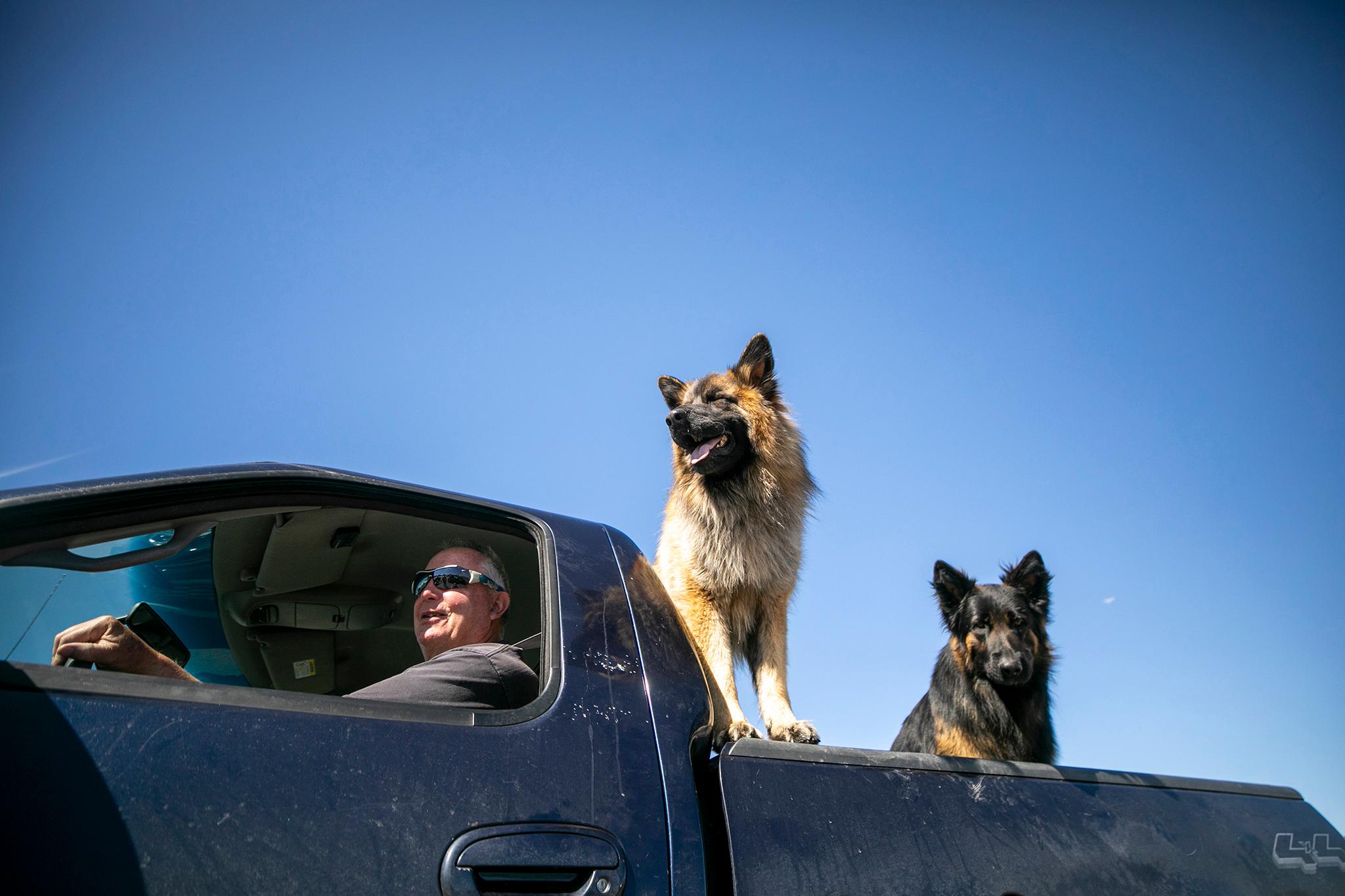Hades and Zeus, two muscular dogs, dash across the off-leash park in the Westminster Hills Open Space.
It’s a Tuesday in March. The recent snow is melting, the ground is muddy, and the few people there on a weekday are slipping and sliding around, trying to keep up with their pups, widening already widened trails as they hike.
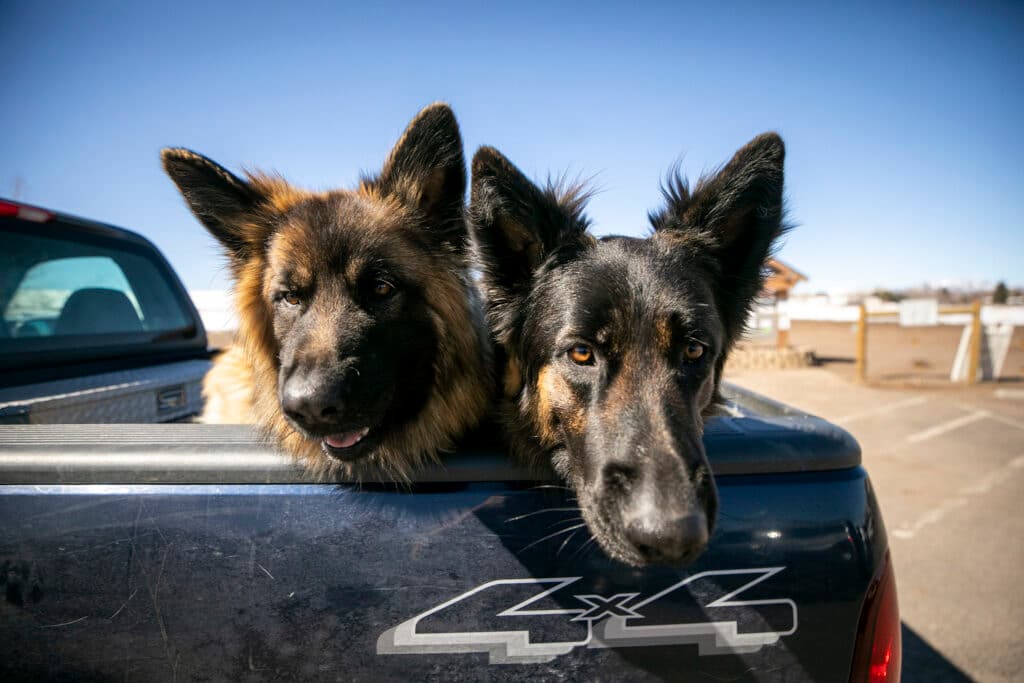
Hades and Zeus' owner, Todd Paulson, is a veteran of the trails. He's brought three generations of dogs to the 400-acre off-leash area within the 1000-plus-acre open space, hiking miles with his furry companions every week.
The off-leash part of the open space has grown since it was founded in 2000, and so have the number of people and their dogs who flock in from Denver, Arvada and Golden.
Now, the city is debating whether it can justify the environmental harm and cost of maintaining 400 acres of off-leash space.
One possibility: cut back the acreage by more than 90%. The very thought has Paulson and thousands of metro dog owners growling.
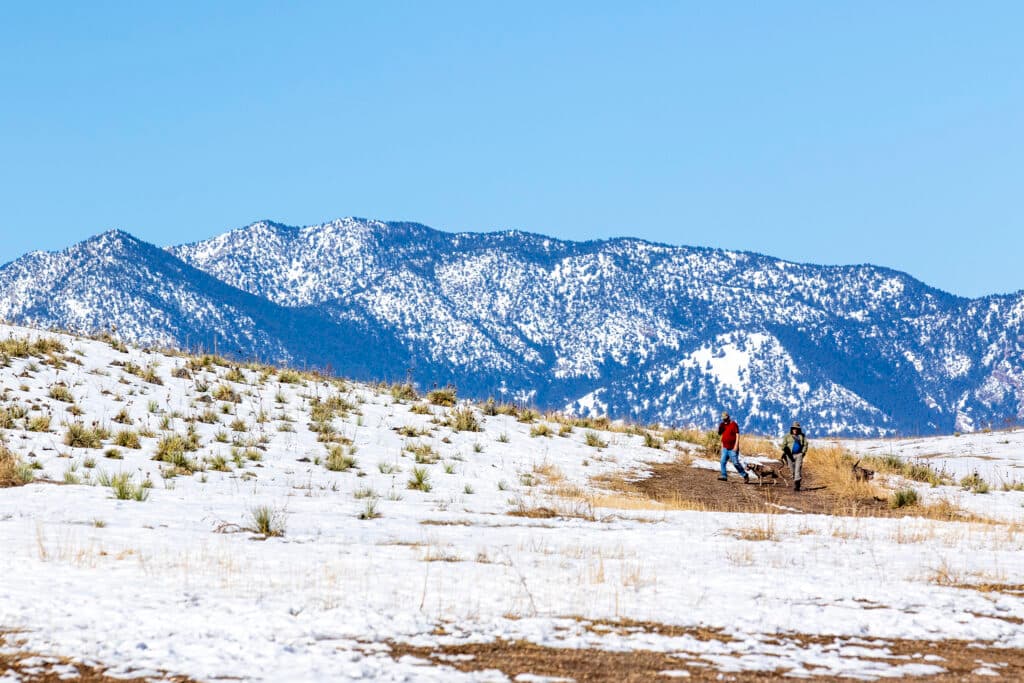
Far away, Zeus and Hades relieve themselves and then run on, like the dogs of more than a million visitors do every year, by the City of Westminster’s count.
Paulson walks up to the scene of the dump, bends over and scoops up the poop, mostly plopping it into a little bag, though a little feces smears on the outside of the sack.
“I didn’t do too good on that one,” he says.
He’s aware cleaning up after his dogs is more than just the right thing to do.
People leaving dog feces around the 400-acre open space is part of why the city is considering slashing the off-leash space.
A recent environmental assessment published by the City of Westminster estimates workers cart out 175 tons of dog waste yearly. That’s based on research finding 100 individual fecal piles in a sample area 20 feet wide by 100 feet long.
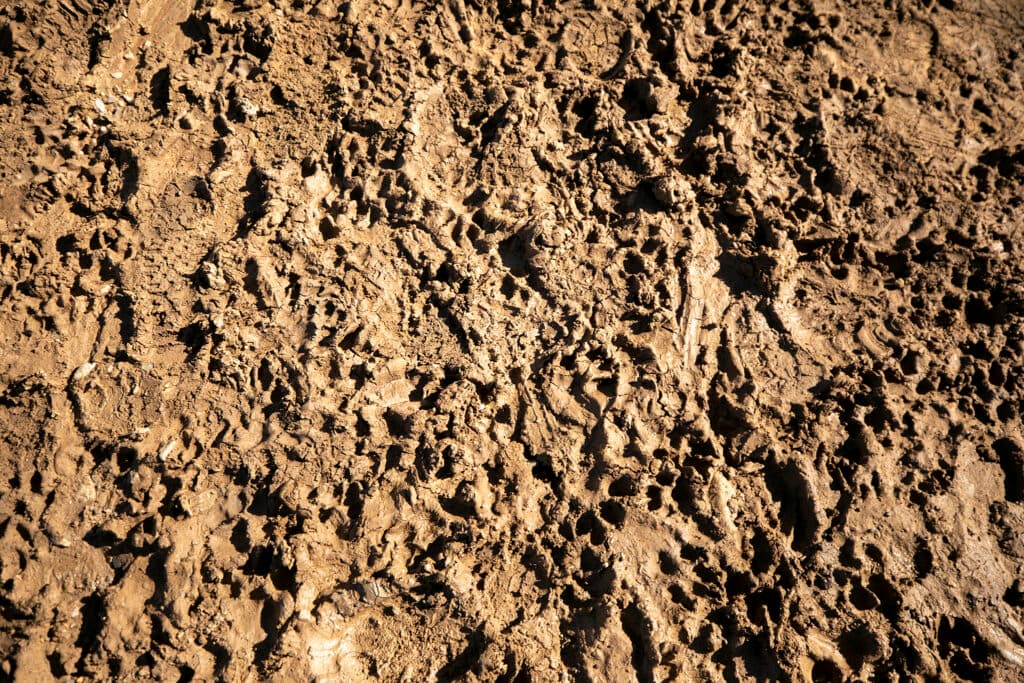
After folding the messy parts of the poo bag inwards, Paulson walks a quarter of a mile, down a muddy, ever-expanding trail, to throw the dung in a trash can.
“I only have one bag left,” he says, and he’s ready to use it.
Like many of the dog owners who use the trail, Paulson's trying to do an extra good job cleaning up after his pups. He doesn’t want to lose this place he loves.
Online, Westminster notes the off-leash dog park is too popular for its own good.
“This has led to the proliferation of informal social trails that has degraded the site’s biodiversity and ecology,” the city explained online. “Despite expanding parking six times, illegal parking has become common, presenting public safety issues for pedestrians, motorists, and the surrounding community.”
To address both the poop and parking problems, the City of Westminster is considering slashing the open space available for off-leash dog walking from 400 acres to 33 acres — managing more users by cutting back space.
At heated public meetings, dozens of residents have voiced their thoughts, some wanting to see no changes to the off-leash area, others proposing to shrink the off-leash area or eliminate off-leash permission and instead create smaller parks throughout the city.
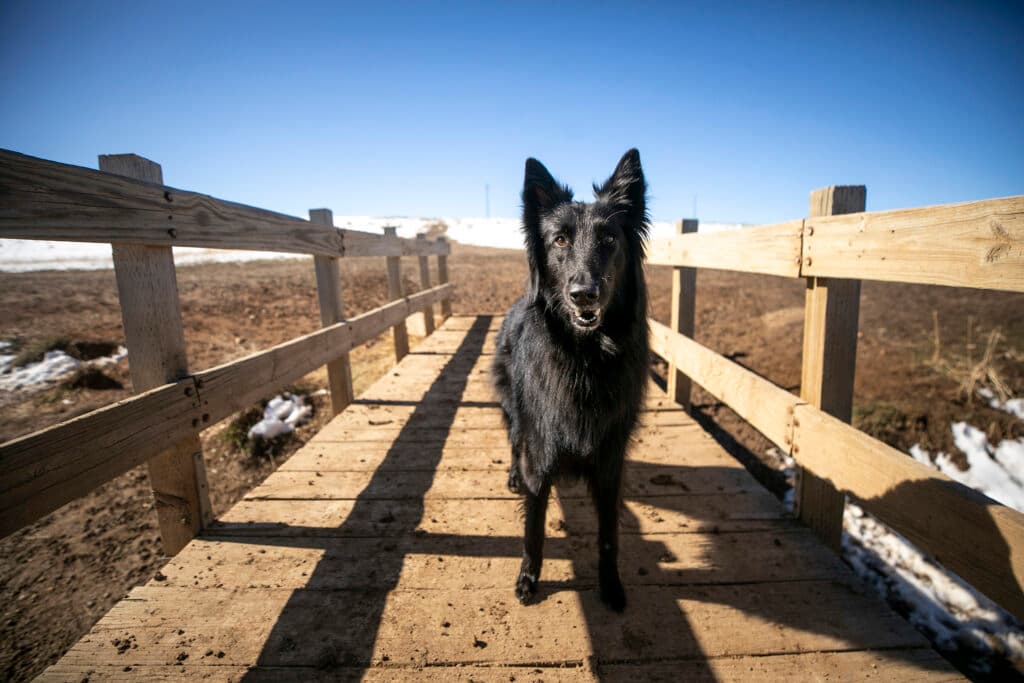
Vicky Perlowski, struggling to find a not-so-muddy part of the trail to walk her dog Tess, says she wishes people would respect the environment more.
She’s been coming to the park for 10 years and appreciates open space where she can go for a hike for an hour and a half.
She avoids the Westminster park in the summer, scared off by rumors of rattlesnakes. She also has some safety concerns. A month or so ago, her car was broken into in broad daylight, and her purse was stolen.
That didn’t stop her and her dog from coming.
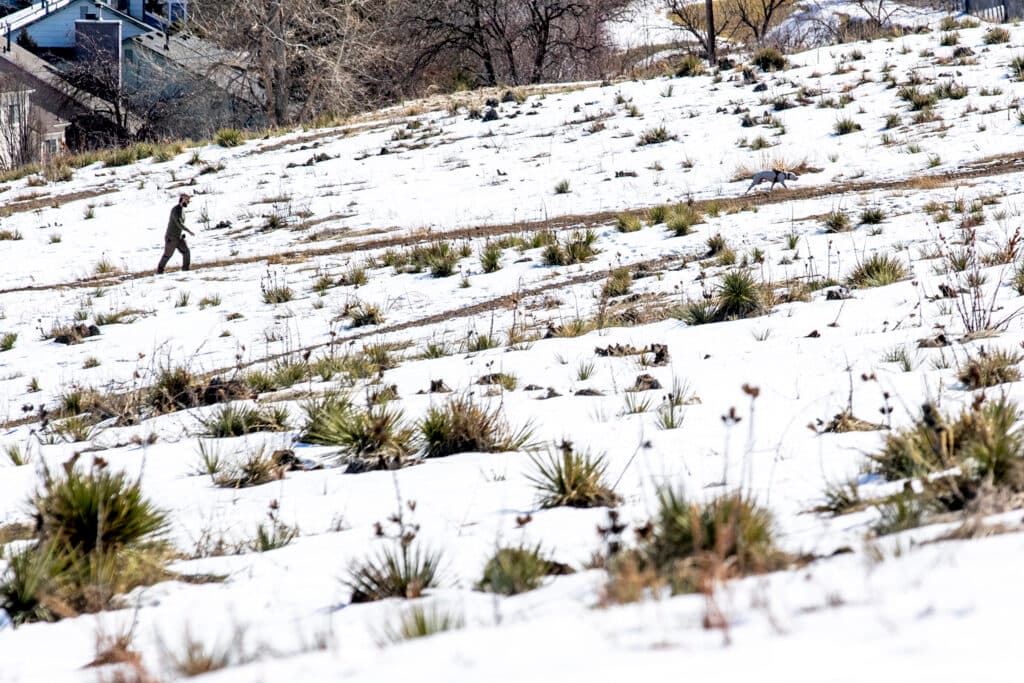
She’s followed the debates about the park and believes the proposal to cut the off-leash space is too drastic.
“I don’t think it should be shrunk down to the point they’re talking about,” she says. “Let’s compromise on it. It’s a wonderful environment. If people would be conscientious of it and take care of it, I don’t think they’d need to go to the extreme they’re talking about.”
Tom Thorpe, who walks with his two dogs decked out in sunglasses, has attended meetings about the change.
He acknowledges that there are many competing priorities on the land: native wildlife need habitat, people need a place to reconnect to their spirituality, and dogs need land to be free, in their natural state.
“When COVID started, this trail went from the width of a road to the width of a four-lane highway almost because people were just like, ‘Yeah, we're social distancing,’” he recalls. “So yeah, it's been loved to death, and we got to give it some love back.”
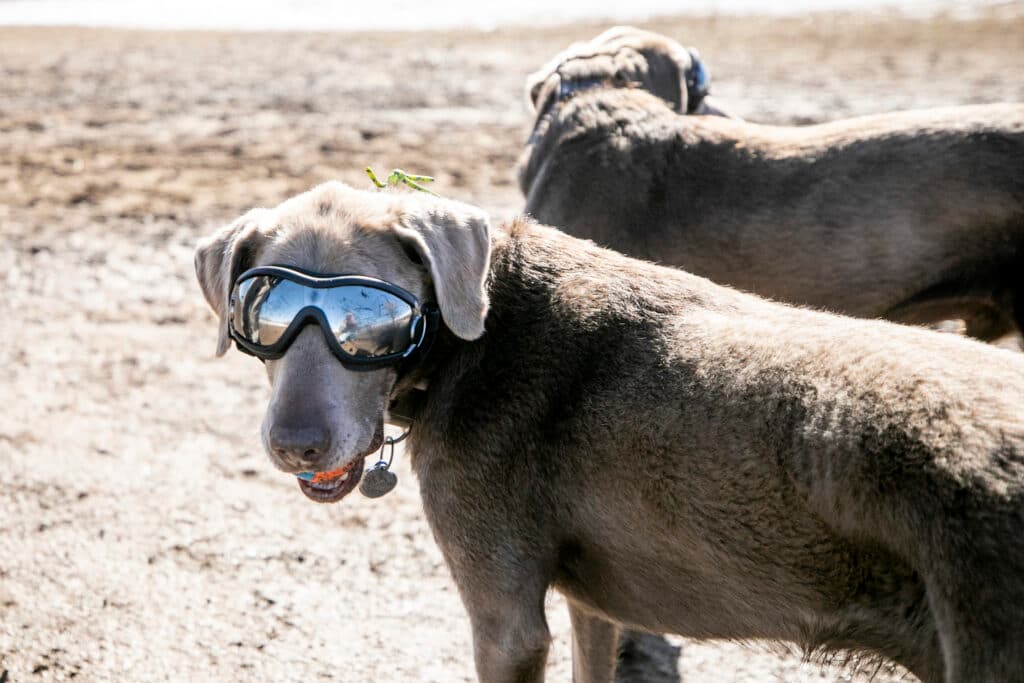
Thorpe is not sure what that will look like, but he’s happy it’s not up to him.
“I'm glad I'm not in the decision-makers’ shoes,” Thorpe says. “It is going to be such a hard decision to make.”
Curt Martens and his dog Suzy live a couple of blocks from the dog park. They’re some of the few Westminster residents walking the trails.
“After a hard day's work, I just come out here and let everything go,” he says. “You see the mountains. You can look at Standley Lake and just relax and chill out.”
He’s frustrated that the City of Westminster is considering decreasing off-leash space at the open space — though he acknowledges that the amount of feces being removed is proof that people aren’t cleaning up as they should.
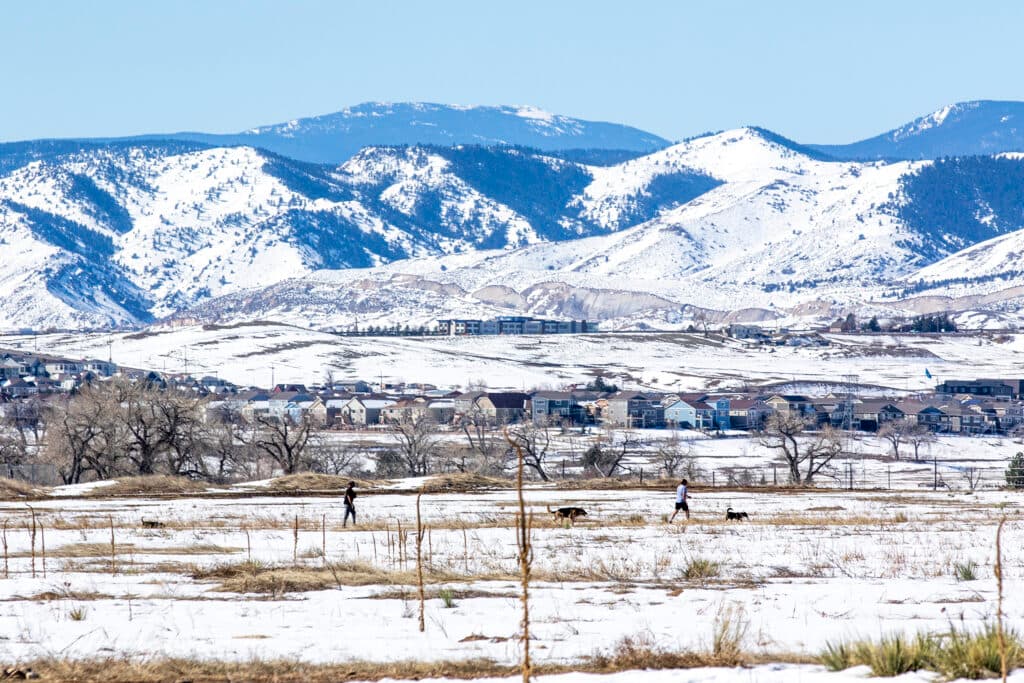
He estimates that half of the people he’s met at the park come from outside the city, and he has a proposal he wants officials to consider.
“Why don't we have some kind of fee for non-Westminster residents?” he wonders.
Courtney Osborn and her son James came from Arvada, sliding on the mud as their dog Wallace wanders around a dried-up creek bed.
They come to the open space fairly regularly, because it’s the closest off-leash dog park to their house — at least since another off-leash area in Evergreen they once preferred closed.
"There were complaints about the health issues like the poop and the disease in the water," Osborn said. "But there was also a really bad parking problem."
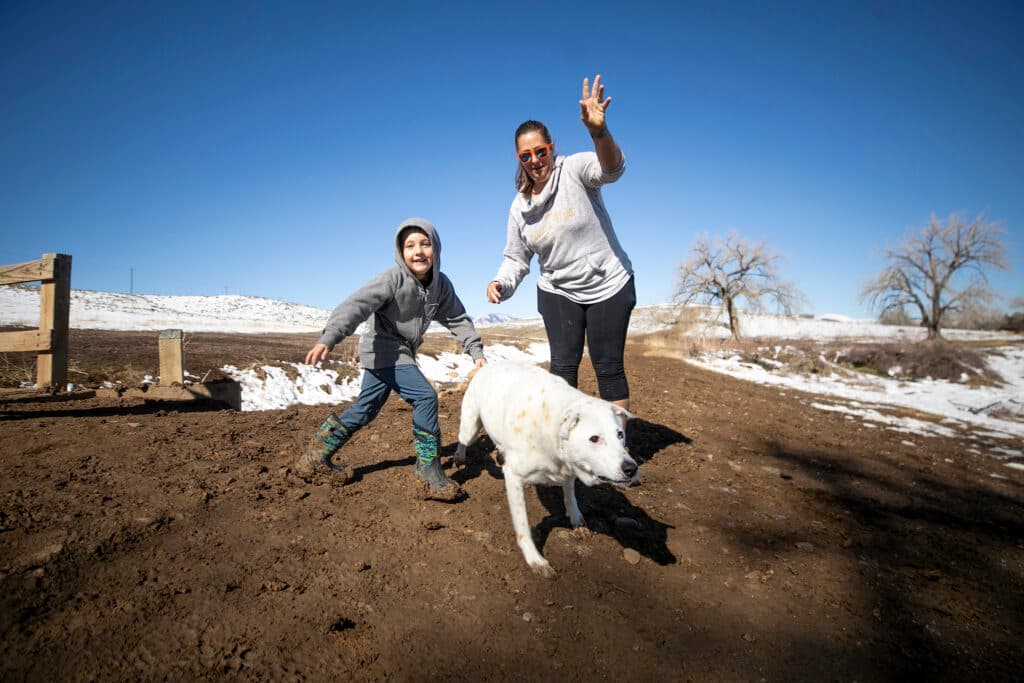
She and others in the community offered to help clean up the Evergreen park, but officials decided they’d rather just shut the place down.
She wishes Westminster would consider mobilizing volunteers to care for the park. Doing so could prevent the off-leash area from being reduced.
And is it really the dogs being off-leash that is causing the issue? Dog poop, as she sees it, is a statewide problem — not something only affecting off-leash areas.
“Colorado loves dogs,” she says. ”And we love hiking. So even when we have leashes, you'll see the poop bags or just the poop that hasn't been picked up. So I don't know that getting rid of this is going to solve that problem in a large way.”
Annie Coe, a traveling nurse born in Denver who currently lives in Montana, brings her dog Mr. Scruffypants to the park to decompress whenever she is stationed in the metro area.
She says she has been coming to the trails “religiously” for fifteen years. Her dictum for physical and mental health: Eat less, walk more.
When she thinks about the off-leash park being cut, she says it “would limit all of our happiness considerably. I see people with big dogs who need big walks, and people who need big walks too."
“Denver is so big and so busy,” she says. “There isn't as much open space” — especially for those wanting to walk with their dogs off-leash.
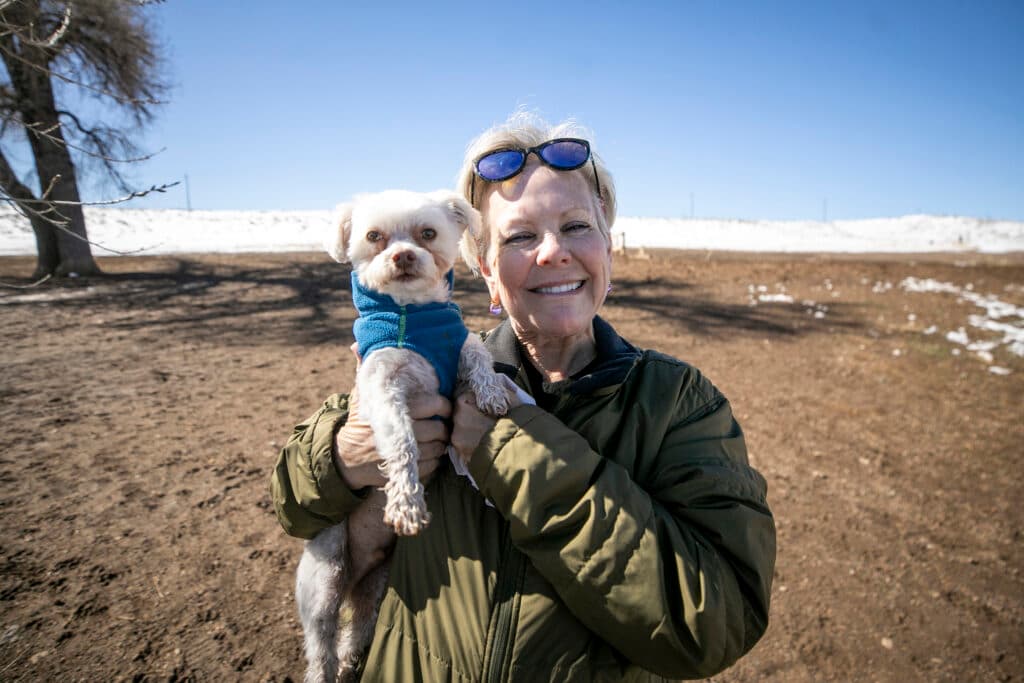
The demand, as Coe sees it, is obvious.
“This place is swamped out if you've been here on Saturdays and Sundays,” Coe says. “The parking lot is full of people. They are parking down the highway.”
Mr. Scruffypants, who is a toy-sized, friendly dog, loves to be around the big dogs, and they love him. The people, too, are pretty nice.
“I've never met an angry ugly person out here or an angry ugly dog,” she says. “Everybody seems to do well with some fresh air and a big walk. You know, I think we all need that, don't you?”
Daniele Shannon of Arvada and Paul Brimmer of Broomfield have been meeting at the open space between their homes once a week and hiking with their dogs: the husky mix Levi, the golden retriever puppy Suki and the little cute pup Evee.
They’ve only been coming for a month, but they’re hooked.
“It’s the fact that I can feel good about them running around and not get in trouble from other people,” Shannon says.
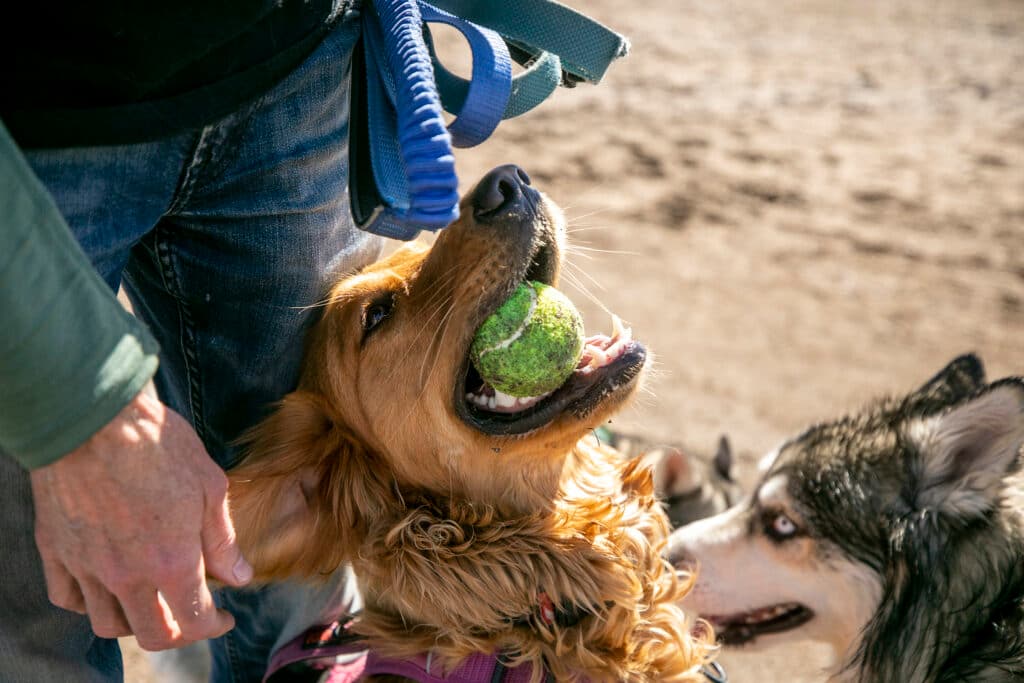
“They have so much fun. The body language — you just don’t see it anywhere else,” Brimmer says.
“We go to other dog parks and such, but this is the happy place,” Shannon adds.
Not only do they not want to see the off-leash space cut back, they hope the Westminster Hills off-leash area is a model for other Front Range cities.
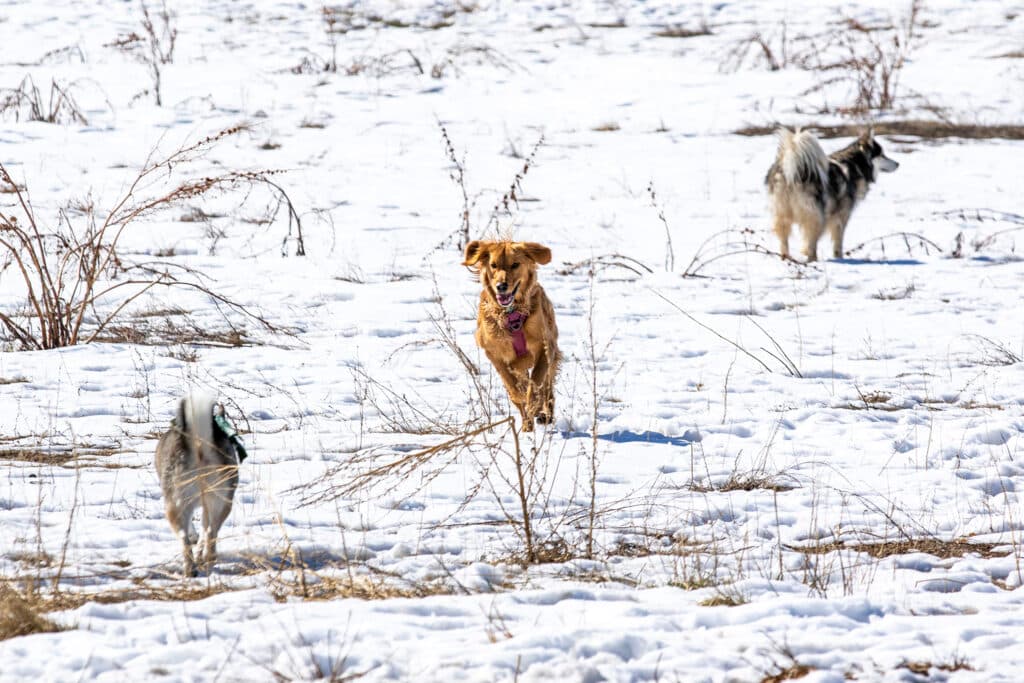
“If we could somehow have cities that have more places like this, I think it would help not have all the traffic right here,” Shannon says.
Shannon and Brimmer try to do their part to keep the land clean.
“We always try to pick up double the dog poop, because I know that dog poop is probably like an epic issue,” she says. “We try to do an extra bag. And I know other people try to do the same thing.”

